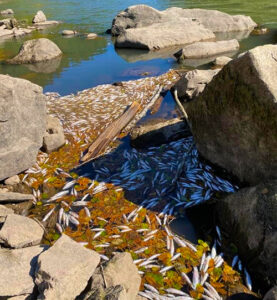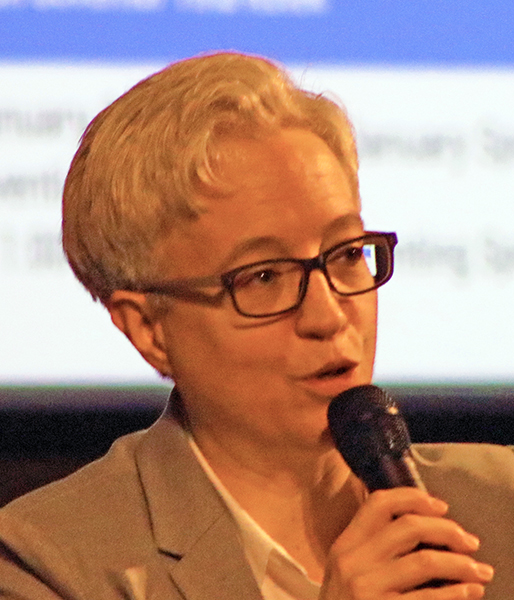Reporter for The Canyon Weekly
Oregon Gov. Tina Kotek has chimed in again on the political backwash over the catastrophic drawdown last fall at Green Peter and Lookout Point reservoirs that killed thousands of fish and led to South Santiam River water quality issues downstream in Lebanon, Albany and Millersburg.
The US Army Corps of Engineers has been working since 2008 on cooling water temperatures and improving fish passage in the Willamette River Basin, including Detroit Lake.
The Corps is working toward a 2025 deadline for a new environmental impact statement (EIS) and record of decision on the project, with the decision on the reservoir draw downs in late November, an action ordered by U.S. District Court Judge Marco A. Hernandez, dramatically elevating public awareness of the situation.

A coalition of elected officials led by state Rep. Jami Cate, Republican from Lebanon, including supervisors from Marion, Lane and Linn counties, has been burning the mailboxes with letters starting in December. Charges and countercharges – and some peace offerings – have been leveled in the series. On Dec. 8, the coalition sent a letter of criticism to Judge Hernandez on the drawdown decision. Next was a Dec. 18 letter from Gov. Kotek to the Corps on its role in implementing Judge Hernandez’s decision.
The Corps responded Feb. 5 with a letter to Kotek from Portland District Commander Col. Larry D. Caswell, who suggested a meeting with the governor.
Kotek also received a Jan. 3 letter from a different coalition of elected officials that criticized the Oregon of Fish and Wildlife for its support of Judge Hernandez’s actions.
That letter also was the first to broach the subject of who is going to pay for the damages. The coalition of elected officials urged the governor to allocate $45 million in emergency funding to cover the costs communities sustained due to the turbid waters.
Feb. 15 Kotek responded with a letter of response to the coalition of elected officials. While agreeing with the leaders that “what happened to your communities is unacceptable” Kotek disagreed on who should be writing the checks.
Looking ahead to the new EIS and final Corps actions to address the fish passage and temperature issues, Kotek wrote that “our agencies are advocating that lower-cost solutions to address diminishing fish runs covered by the federal [Endangered Species Act] be examined and that any costs to communities be factored into the federal budget.
Kotek also defended the ODFW, noting that the agency “is not a plaintiff in the court filing.”
“From the outset,” Kotek wrote, “the [ODFW] advised the court that violating water quality standards was not inevitable, and that coordination and communication by the Corps across all levels of state and local governments would be critical as the drawdowns were planned and implemented. This is what was advocated for leading up to the last drawdown, and that it did not occur is a source of frustration that we all share and agree needs to be addressed going forward.”






